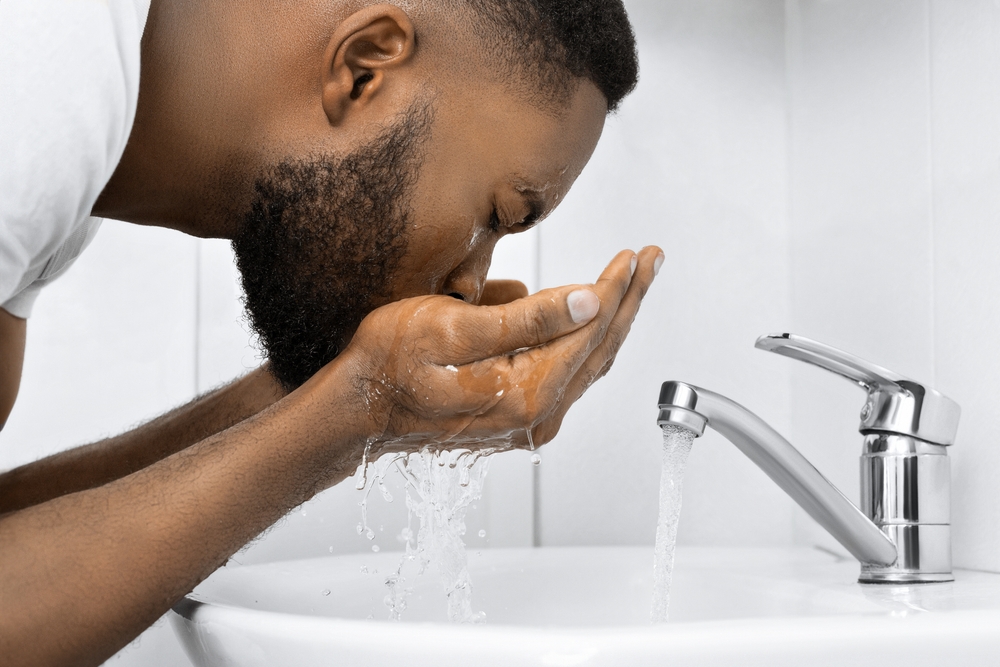Breakouts can strike at any time in your adult years, and for women, chin acne in particular can prevent you from looking and feeling your best. The chin has many oil glands, making it a prime spot for clogged pores and a breeding ground for bacteria. Add stress, poor diet choices, and potential hormonal acne to the equation, and you have a recipe for repeated breakouts.
What causes chin acne?
Like acne elsewhere on the face, various factors may contribute to chin breakouts. According to Dr. Carmen Castilla, a New York City-based board-certified dermatologist, “Acne generally is affected by diet, lifestyle, hormones, bacteria, genetic factors, stress levels, and skin hygiene routines.”
Diet: Certain foods are more likely than others to trigger acne. Dr. Azadeh Shirazi, a board-certified dermatologist, notes that cow milk, sugars, and artificial sweeteners elevate insulin levels, increasing oil production and clogging pores.
Hormones: Hormonal fluctuations, especially around the menstrual cycle, can cause acne flare-ups. Hormonal blemishes are often red, inflamed, and filled with pus.
PCOS: People with Polycystic Ovary Syndrome (PCOS) often have irregular periods and increased acne in a less predictable way, explains Dr. Hadley King, a board-certified dermatologist.
Maskne: Wearing a mask can lead to chin acne due to the extra sweat and oil production. Dr. King recommends cleansing your skin before and after wearing a mask and using a serum with salicylic acid.
How to treat chin acne
Because chin acne can have several underlying causes, you’ll want to adopt a multi-faceted approach to its treatment. Here are a few solutions to consider:
- Salicylic acid-based products: These help exfoliate and decrease sebum production. Dr. Castilla recommends products like CLn acne wash.
- Benzoyl peroxide: This ingredient kills acne-causing bacteria. Dr. Castilla suggests using a formulation of five percent or less to avoid irritation.
- Hypochlorous acid: This antimicrobial ingredient helps wound healing and is less irritating than other treatments.
- Retinoids: OTC retinoid Adapalene 0.1 percent gel can help prevent acne and improve marks left behind.
- Prescribed oral or topical products: For severe acne, dermatologists may prescribe antibiotics or retinoids like tretinoin or tazarotene.
- Spot treatments: These can be effective for treating stubborn chin zits. Options include pimple patches and isotretinoin for severe cases.
- LED therapy: Blue light can help kill bacteria, while red light can assist with inflammation.
Will chin acne go away on its own?
For the most part, acne will come and go on its own, especially if it’s hormone-related. However, if you’re not satisfied with the level of control you’re getting with OTC options or you’re experiencing scarring, consult a dermatologist for other treatments like cortisone injections or laser treatment.
How to prevent chin acne
Preventing chin acne is easier than dealing with it once it’s formed. Dr. Shirazi recommends staying consistent with a solid skincare routine that includes exfoliating with a salicylic product, using retinol at night, and spot treating acne-prone areas with benzoyl peroxide. Moisturizing is also key to supporting the skin barrier and keeping bacteria at bay.
Dr. Castilla emphasizes the importance of a balanced lifestyle, including a healthy diet rich in fruits and vegetables, limiting sugar and dairy, and managing stress. Even with the best efforts, acne can still flare up from time to time. Stay positive and work with a board-certified dermatologist to find a resolution.





